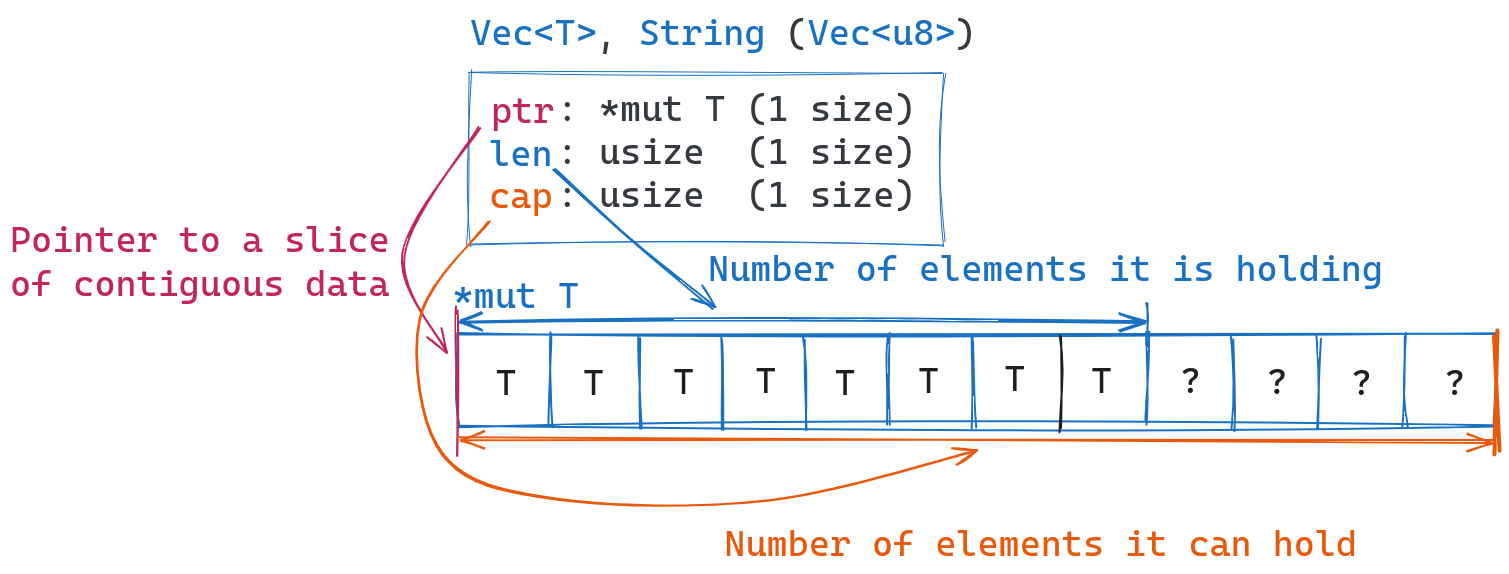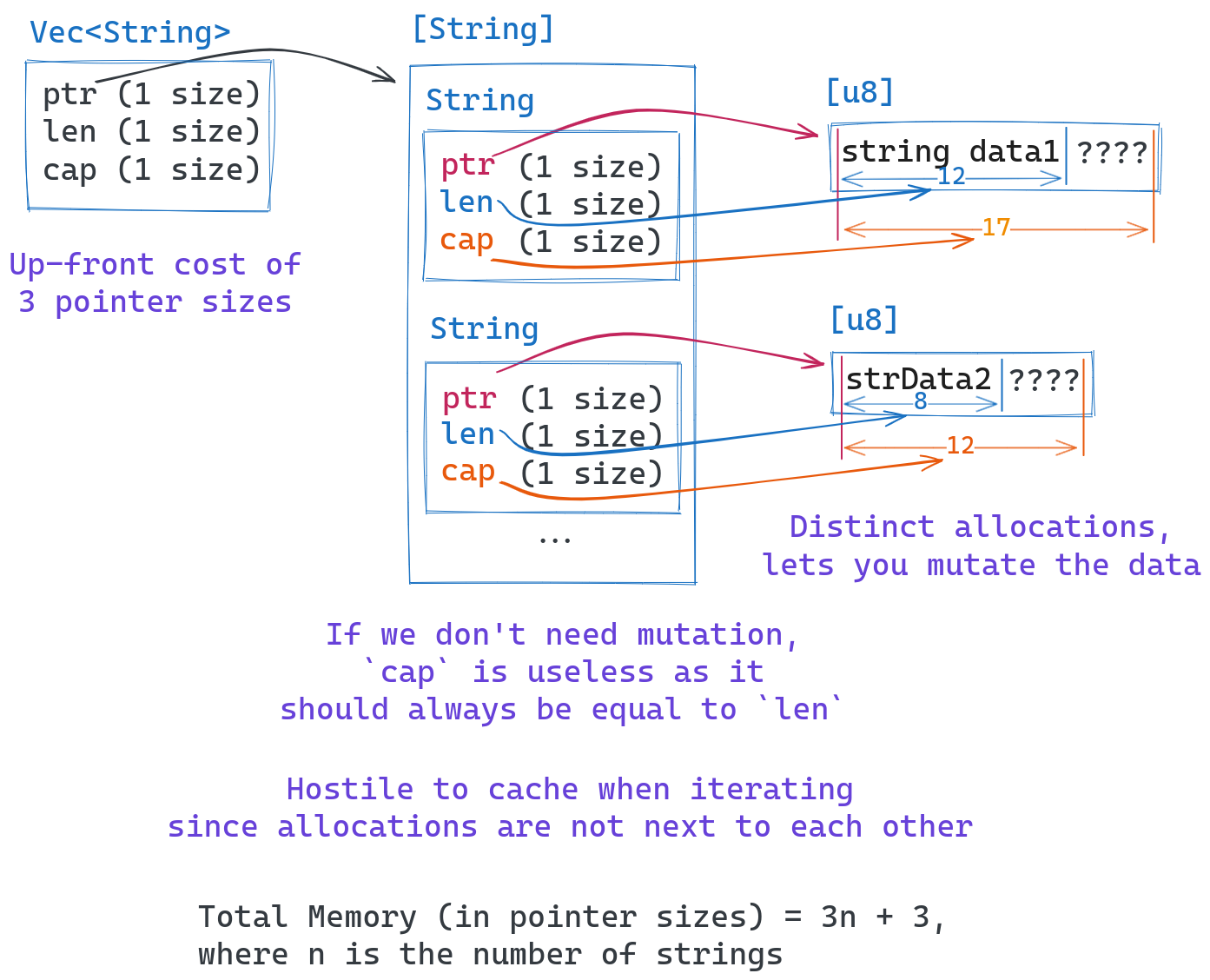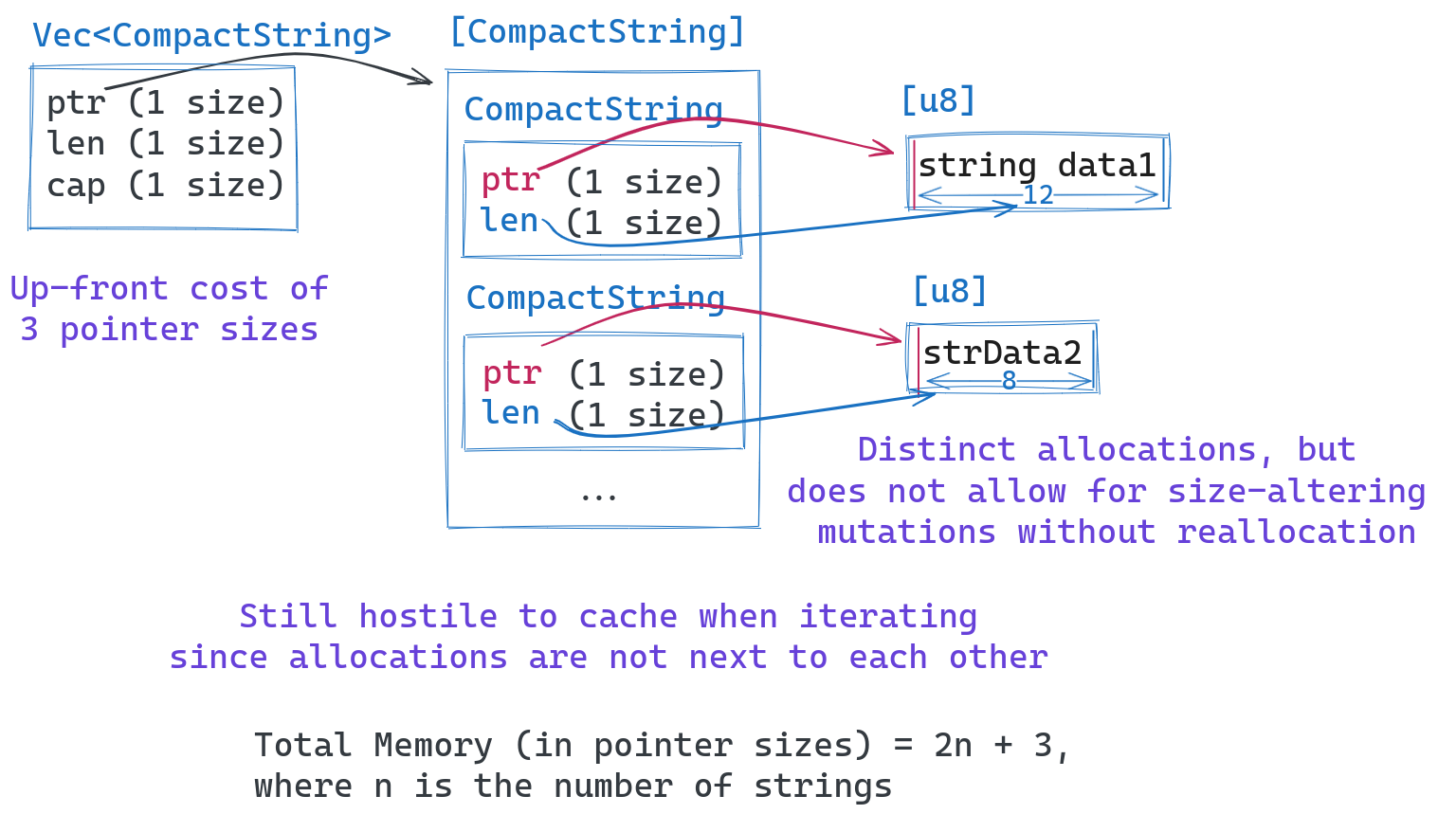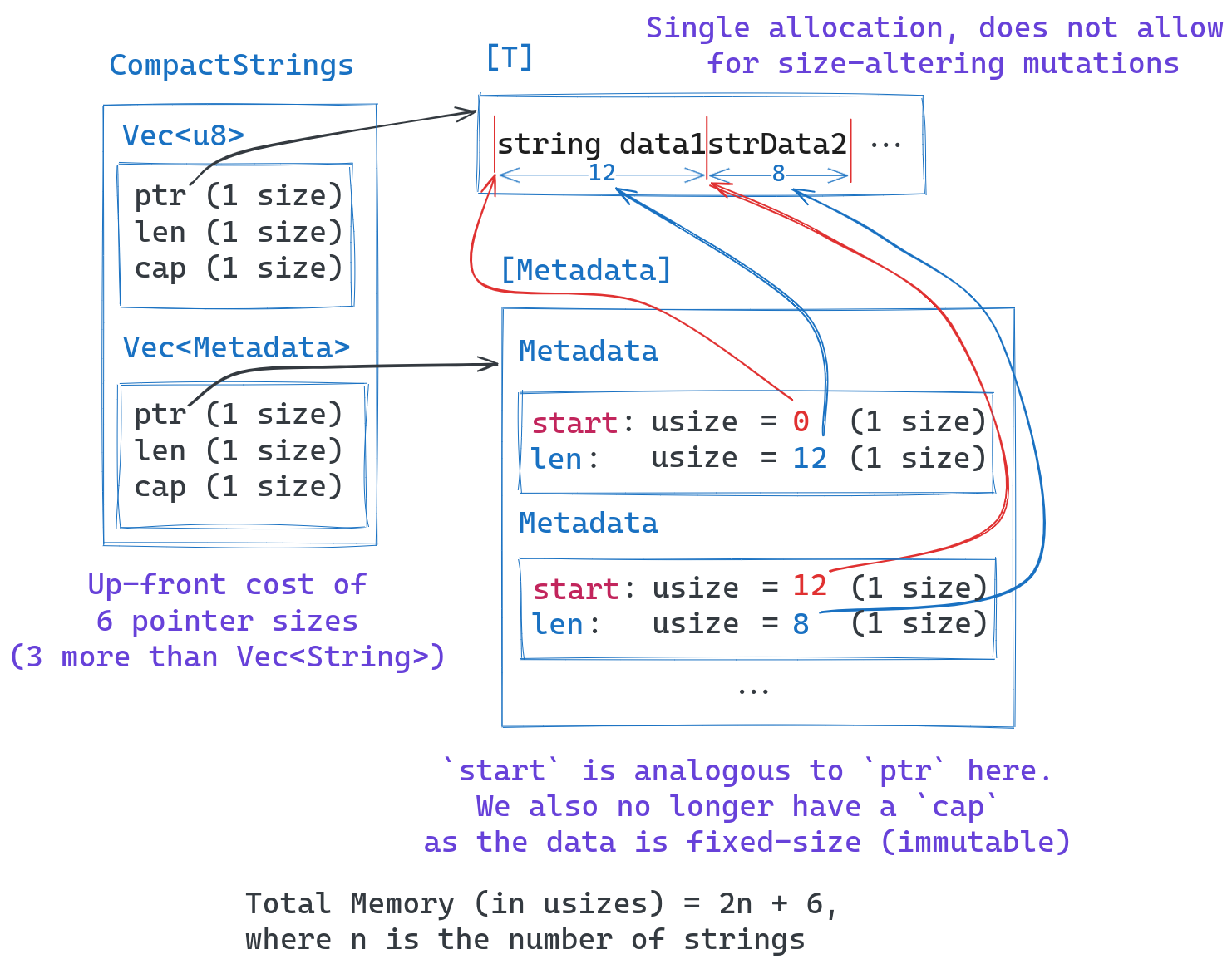Compact String Lists
23 Jan 2024
Around 8 months ago, I was working on parui, a TUI for managing packages on Arch.
I had an idea to save memory in the list of package names by getting rid of the cap field of the Strings, since package names are immutable.
Unfortunately, that means that I would have to make my own data structure, since we can't just delete the field in the standard library - that would break a lot of things.
How Vec<String> works
I made a few diagrams with Excalidraw to make it easier to follow along -
here's one showing how Vecs and Strings are represented in memory, though in a somewhat simplified form.

As the diagram shows, a Vec contains 3 pointer sizes of information, excluding the actual data it holds.
This is a baseline for the amount of memory we will need.
Now, here's the representation of Vec<String> in memory.

We see that each String takes up another 3 pointer sizes of information, as they are just Vecs under the hood.
We will use n to notate the number of strings stored, thus giving us a total memory usage of 3n + 3 pointer sizes after accounting for the base Vec's 3 pointer sizes.
Getting more space efficient
My idea was to get rid of the cap field in the Strings inside the Vec.
We can easily do that by making a CompactString with just a ptr and len.
This gives us the following representation.

This fulfills my expectations of a smaller representation of a list of strings with a memory footprint of 2n + 3, meaning
it grows slower than Vec<String> by 1 pointer size per string.
However, parui needs to store very many package names - my package repositories list
107329 packages at the time of writing this, which would result in 107329 allocations in order to populate the Vec<String>.
Sacrificing memory for population speed
To solve this, we could perhaps use two Vecs instead - one to store the string data, and another to store the starts and lengths of the strings
inside the data Vec - at the cost of an additional 3 pointer sizes upfront, bringing it to a total of 6.
This also means that adding more strings is likely to be less expensive, as we have one large allocation that grows exponentially, allowing us to reuse the allocation for longer instead of making a new allocation for each string.
This would look something like this.

This representation means that although we grow our memory usage slower than Vec<String>,
we only save memory when there are at least 3 strings.
For my use case in parui, this is acceptable since at the time of writing this, since I would still be saving (107329 - 3) * 8 bytes, or 858.6 kB of memory on my 64-bit system, while also having a faster population time.
Was it worth it? Well, parui still takes nearly 10 MB of memory - so probably not, although you could say it saved roughly 10% on memory usage.
Publishing
I also decided to publish these data structures as a crate, compact_strings (repo) (MIT), so that others can use it.
The crate also includes a CompactBytestrings data structure for replacing Vec<Vec<u8>> with the same principles,
which is also now used as the backing structure of CompactStrings.
I have also included some benchmarks to compare the data structures provided by this crate against the Vec-based
structures they are intended to replace. Unfortunately, it is often slower - though by less than a magnitude,
because it requires 2 accesses - one for metadata and one for the actual data - instead of only 1 for the Vec-based
structures. That said, it did manage to squeeze out better performance when populating the list, being roughly twice
as fast at populating a list of 10 million strings as measured on my machine.
Future Efforts
In theory, it should be possible to expose a limited mutation API for CompactBytestrings and CompactStrings, but it would
be riddled with validation checks that are easy to do wrong and cause bugs. Besides, I think such an API
would be severely limiting, with the most powerful operation likely being a map or replace with the heavy limitation
of the size in bytes of the replaced string being less than or equal to the size in bytes of the starting string.
Addendum
The compact_strings crate now features an even more compact representation dubbed "fixed" compact strings (and bytestrings).
These representations only use n + 6 pointer sizes of auxiliary memory by getting rid of the lengths in the metadata.
Unfortunately, this efficiency is not free as it makes some parts of the API - especially those related to mutation, less
flexible or more expensive - methods like ignore are now impossible to implement for example.
This was an idea sparked by Jimmy (cai_bear on Discord) and was implemented with help from Gnome (gnomeddev on Discord). A big thanks to both of them!